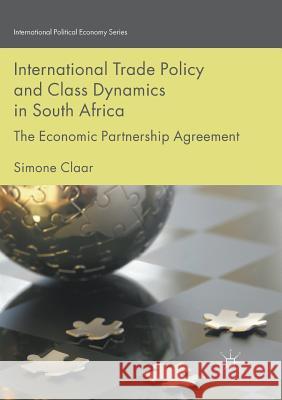International Trade Policy and Class Dynamics in South Africa: The Economic Partnership Agreement » książka
topmenu
International Trade Policy and Class Dynamics in South Africa: The Economic Partnership Agreement
ISBN-13: 9783319880884 / Angielski / Miękka / 2018 / 244 str.
Kategorie BISAC:
Wydawca:
Palgrave MacMillan
Seria wydawnicza:
Język:
Angielski
ISBN-13:
9783319880884
Rok wydania:
2018
Wydanie:
Softcover Repri
Ilość stron:
244
Waga:
0.32 kg
Wymiary:
21.01 x 14.81 x 1.4
Oprawa:
Miękka
Wolumenów:
01
Dodatkowe informacje:
Wydanie ilustrowane











